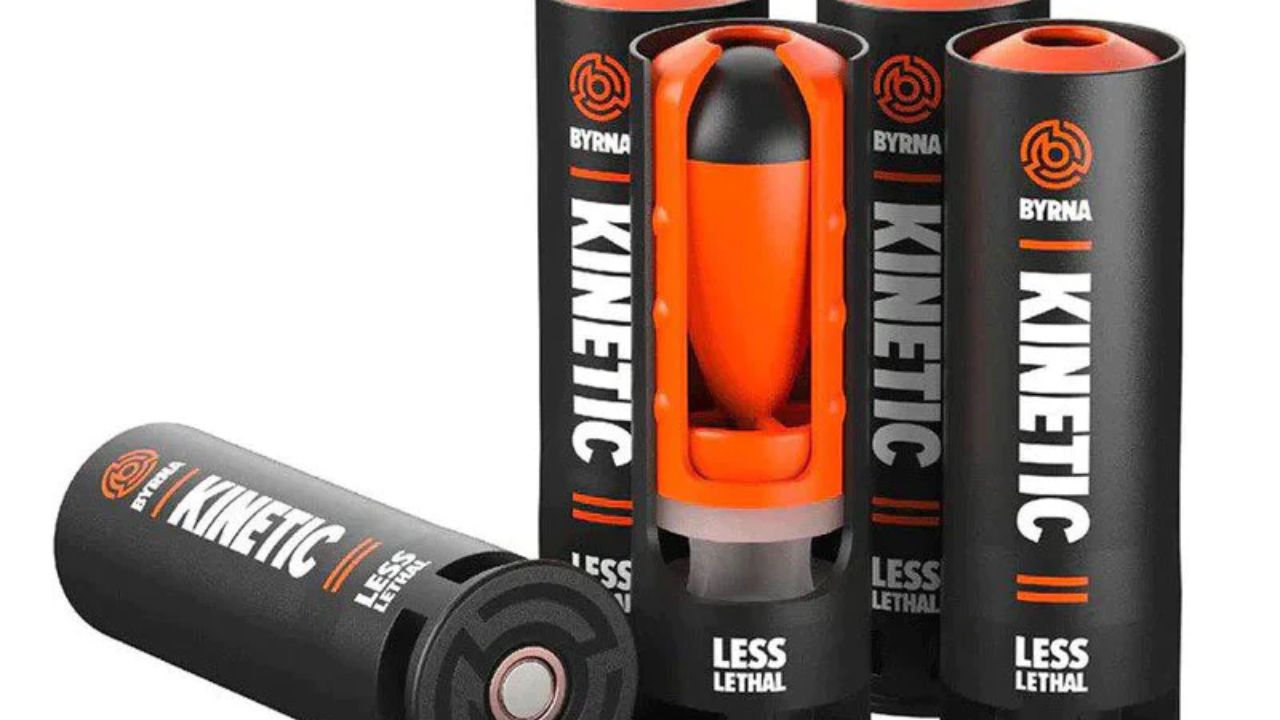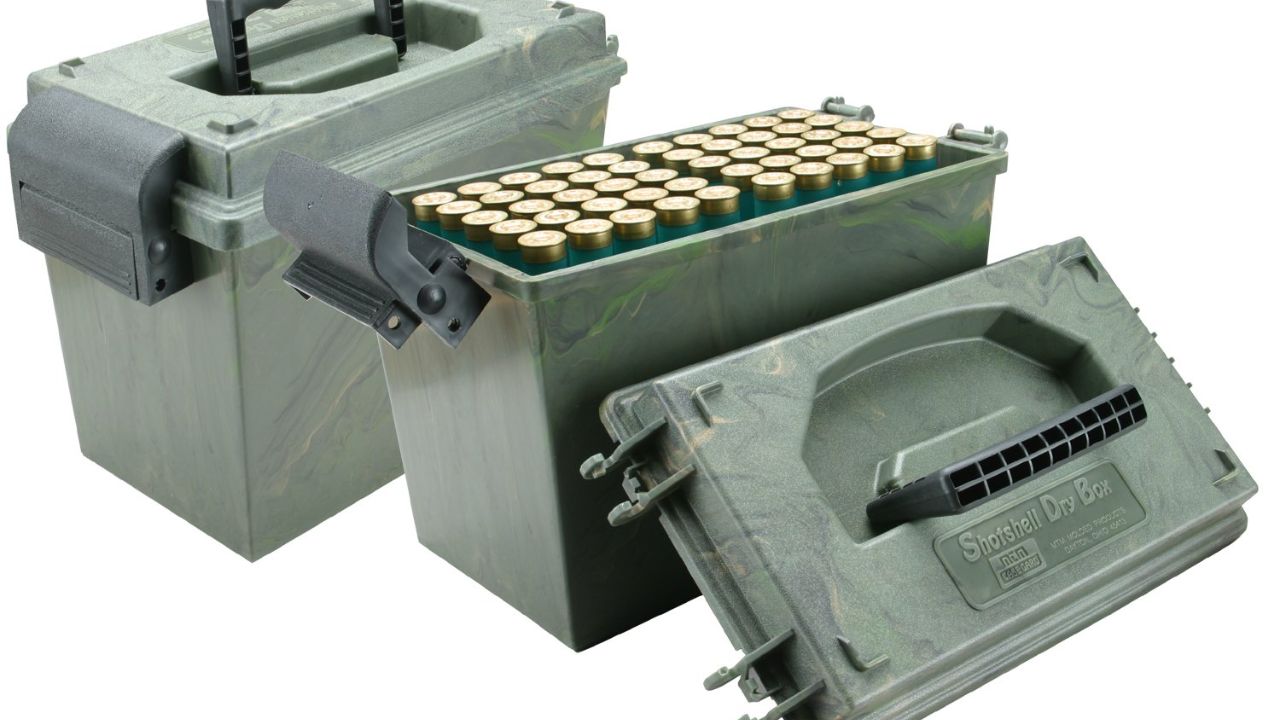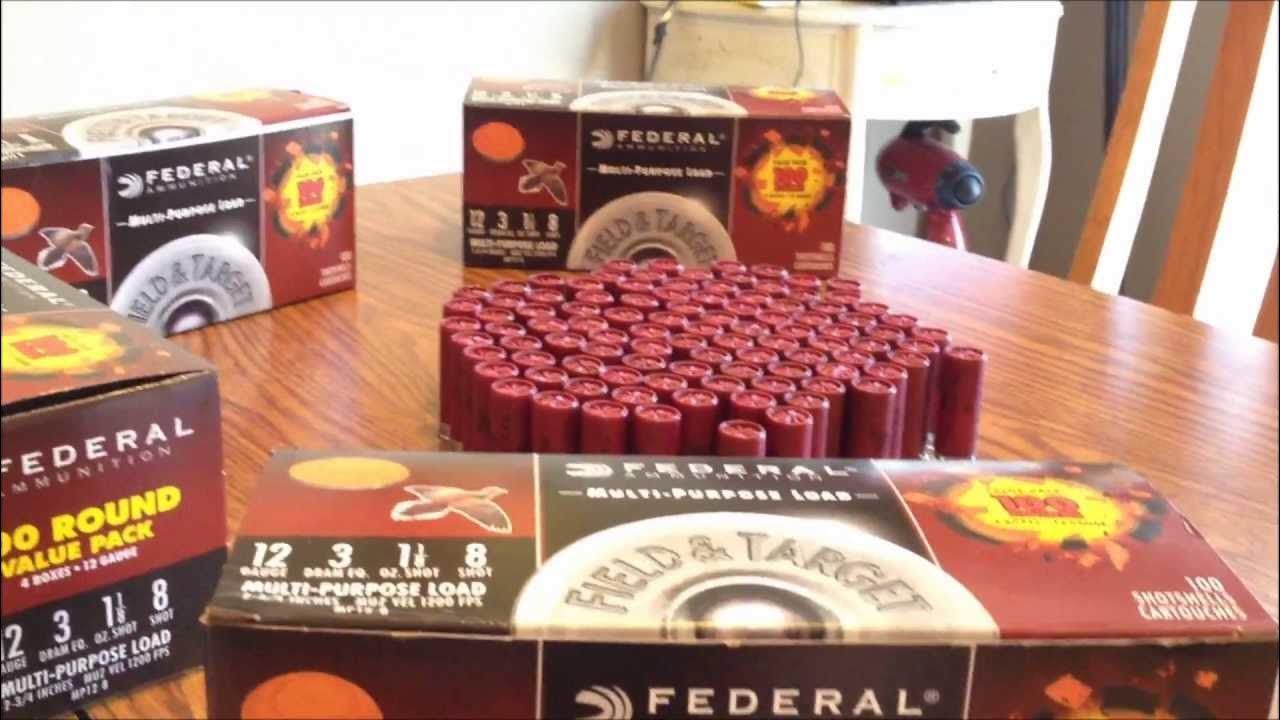Proper maintenance of your 12 gauge ammo 100 pack is crucial for ensuring its reliability and performance. Whether you’re a seasoned hunter, sports shooter, or firearm enthusiast, taking care of your ammunition is essential for safety and longevity. In this guide, we’ll walk you through the steps to effectively maintain your 12 gauge ammo 100 pack, keeping it in optimal condition for your shooting needs.
12 Gauge Ammo
 Before delving into maintenance procedures, it’s essential to understand the basics of 12 gauge ammo. This type of ammunition is commonly used for shotguns and comes in various configurations, including birdshots, buckshot, and slugs. Each type serves a specific purpose, whether it’s hunting, target shooting, or self-defence. The “gauge” of shotgun ammunition refers to the diameter of the bore, with the 12 gauge being one of the most popular sizes. A larger gauge number indicates a smaller bore diameter, whereas a smaller gauge number indicates a larger bore diameter. In the case of 12 gauge ammo 100 pack, psa dagger micro 9mm 15 round magazine it has a bore diameter of approximately 18.5 millimetres (0.729 inches). Birdshot shells contain small pellets designed for hunting birds and small game. These pellets are typically made of lead or steel and are dispersed in a pattern when fired, making them effective for hitting moving targets.
Before delving into maintenance procedures, it’s essential to understand the basics of 12 gauge ammo. This type of ammunition is commonly used for shotguns and comes in various configurations, including birdshots, buckshot, and slugs. Each type serves a specific purpose, whether it’s hunting, target shooting, or self-defence. The “gauge” of shotgun ammunition refers to the diameter of the bore, with the 12 gauge being one of the most popular sizes. A larger gauge number indicates a smaller bore diameter, whereas a smaller gauge number indicates a larger bore diameter. In the case of 12 gauge ammo 100 pack, psa dagger micro 9mm 15 round magazine it has a bore diameter of approximately 18.5 millimetres (0.729 inches). Birdshot shells contain small pellets designed for hunting birds and small game. These pellets are typically made of lead or steel and are dispersed in a pattern when fired, making them effective for hitting moving targets.
Buckshot shells contain larger pellets, usually made of lead, and are commonly used for hunting larger game or for self-defence purposes. The larger size of buckshot pellets provides increased stopping power and penetration. Slugs are single, solid projectiles designed for greater accuracy and range. They’re often used for hunting larger game or for shooting at longer distances where precision is essential. Understanding the differences between these types of 12 gauge 3 inch shells is crucial for selecting the right ammunition for your intended purpose. Whether you’re hunting, competing in shooting sports, or using your shotgun for self-defence, choosing the appropriate ammo ensures optimal performance and effectiveness.
Importance of Proper Maintenance
Maintaining your 12 gauge ammo 100 pack is more than just a routine chore—it’s a matter of safety and performance. Neglecting proper maintenance can lead to malfunctions, misfires, or even accidents. By keeping your ammo clean and well-maintained, you can ensure consistent reliability and accuracy with every shot.
Proper maintenance involves:
- Examine your ammunition for indications of wear or damage.
- Cleaning it often can help to get rid of dirt and debris.
- Storing it properly to guard against external influences.
These upkeep chores prolong the life of your ammunition while also maintaining its quality. Additionally, early detection of such problems through routine maintenance enables you to take action before they worsen and become more serious difficulties. Whether it’s a minor blemish on a cartridge or a buildup of fouling in the barrel, addressing these issues promptly ensures the continued reliability and performance of your 12 gauge ammo.
Furthermore, proper maintenance instils confidence in your ammunition, knowing that it’s been cared for and maintained according to manufacturer recommendations. Whether you’re out in the field hunting game or participating in shooting competitions, having well-maintained ammo gives you peace of mind, 7.62×25 ammo cheaper than dirt knowing that your shots will land where they’re intended. Proper maintenance is essential for keeping your 12 gauge 2 3/4 shells in optimal condition for safe and reliable use. By investing time and effort into maintaining your ammunition, you can enjoy consistent performance and accuracy with every shot, ensuring a positive shooting experience every time.
Tools and Supplies Needed

Before you begin the maintenance process, gather the necessary tools and supplies. Having the right equipment on hand will make the maintenance process more efficient and effective. The following is a list of necessary equipment and tools for servicing your 12 gauge bird shot ammo:
- Soft Cloth: To clean the cartridges’ exteriors and get rid of any surface impurities, best rifle for home protection use a soft cloth.
- Cleaning Solvent: Choose a cleaning solvent specifically designed for firearms to effectively dissolve powder residue and fouling.
- Lubricant: Select a high-quality gun lubricant to protect your cartridges from moisture and corrosion and ensure smooth operation.
- Cleaning Rod with Patches: A cleaning rod equipped with patches allows you to clean the inside of the cartridges and the primer area thoroughly.
- Brush for Shotgun Barrels: Use a brush designed for shotgun barrels to remove stubborn fouling and debris from the inside of the barrel.
Having these supplies and tools on hand can make maintenance easier and help you maintain the best possible condition for your 12-gauge ammunition.
Inspecting Your Ammo
Before cleaning or using your 3 1/2 inch shotgun shells, it’s essential to inspect each round thoroughly for any signs of damage or wear. Here’s a step-by-step guide on how to inspect your ammunition:
- Visual Inspection: Begin by visually inspecting each round of ammo for any visible signs of damage, such as dents, scratches, or deformities. Pay close attention to the cartridge casing, primer, and projectile for any abnormalities.
- Ch ck for Corrosion: Examine the cartridges for any signs of corrosion, especially around the primer and casing. Corrosion can weaken the integrity of the cartridge and compromise its reliability.
- Inspect the Primer: Ensure that the primer is properly seated and free from any damage or deformation. A damaged primer can result in misfires or other malfunctions during use.
- Examine the Projectile: Check the projectile (shot or slug) for any deformities or damage that may affect its trajectory or performance. ar 15 rifle for sale Look for signs of flattening, dents, or irregularities in shape.
- Verify the Overall Condition: Assess the overall condition of each round, including the cleanliness of the casing and the presence of any foreign particles or debris. Any contaminants or obstructions should be addressed before use.
- D card Damaged Rounds: If you encounter any rounds that show signs of damage or wear, such as dents, corrosion, or deformation, discard them immediately. Using damaged ammo can lead to malfunctions or safety hazards during firing.
By thoroughly inspecting your 3 1/2 inch shotgun shells before use, you can identify any potential issues and ensure that only safe and reliable cartridges are loaded into your shotgun. Inspecting your ammo should be a standard practice before each shooting session to maintain safety and performance.
Cleaning Procedures
Cleaning your 12 gauge ammo is essential for maintaining its reliability and performance. Follow these step-by-step procedures to ensure thorough cleaning:
- Set Up Your Desk: Establish a spotless, well-ventilated workstation first. Put down a towel or protective mat to stop spills and messes.
- Di assemble Your Shotgun: Disassemble your shotgun to access the chamber and barrel easily. Refer to your firearm’s owner’s manual for specific disassembly instructions.
- Inspect the Barrel: Using a flashlight, inspect the barrel of your shotgun for any fouling, debris, or corrosion. Look for any obstructions or buildup that may affect performance.
- Attach Cleaning Rod and Patch: Attach a cleaning rod to a patch holder and insert a clean patch soaked in solvent. Run the patch through the barrel several times to remove fouling and residue.
- Scrub the Chamber: Use a chamber brush dipped in solvent to scrub the chamber of your shotgun. Pay close attention to any buildup or fouling around the chamber walls.
- Clean the Action: Wipe down the action of your shotgun with a solvent-soaked cloth to remove any dirt or debris. Take your time, prvi partizan 120 grain but don’t rush things to save any internal parts.
- Inspect and Clean the Ca Bridges: While your shotgun is disassembled, take the opportunity to inspect each round of 2 3 4 12 gauge shells. Wipe down the cartridges with a clean cloth to remove any surface contaminants.
By following these cleaning procedures regularly, you can ensure that your 12 gauge ammo and shotgun remain in optimal condition for safe and reliable use. Regular cleaning helps prevent corrosion, extends the life of your firearm, and maintains performance consistency over time.
Storage Recommendations
 Proper storage is essential for maintaining the quality and performance of your 12 gauge ammo. Follow these recommendations to ensure your ammunition remains in optimal condition:
Proper storage is essential for maintaining the quality and performance of your 12 gauge ammo. Follow these recommendations to ensure your ammunition remains in optimal condition:
- Choose a Cool, Dry Location: Store your 2 3 4 12 gauge shells in a cool, dry place away from direct sunlight and moisture. Exposure to heat, humidity, or extreme temperatures can degrade the quality of the cartridges and affect their performance.
- Use Airtight Containers or Ammo Cans: Consider storing your ammunition in airtight containers or ammo cans to guard against elements of the environment, such as dust, moisture, and rust. Airtight storage helps preserve the integrity of the cartridges and prevents oxidation.
- Store Away from Chemicals and Solvents: Avoid storing your ammunition near chemicals, solvents, or other corrosive substances that could potentially damage the cartridges. Store them separately in a dedicated storage area away from any harmful materials.
- Rotate Your Stock: To ensure the freshness and reliability of your 12 gauge amm, practice stock rotation by using older cartridges first and replenishing your supply with newly purchased ammunition. This helps prevent the cartridges from becoming stale or deteriorating over time.
- Monitor Environmental Conditions: Regularly monitor the environmental conditions of your storage area, including temperature and humidity values. Winchester Super-X Ammunition To maintain ideal conditions, test humidity using a hygrometer and think about employing moisture-absorbing items or desiccants.
By following these storage recommendations, you can ensure that your 3 1/2 inch shotgun shell remains in excellent condition and is ready for use when needed. Proper storage helps preserve the quality and performance of your ammunition, ensuring safe and reliable shooting experiences.
Avoiding Common Mistakes
When maintaining your 3 1/2 inch shotgun shell, It’s critical to stay away from typical errors that could shorten its lifespan and performance. The following are some dangers to be aware of:
- Using Abrasive Cleaning Materials: Avoid using abrasive materials such as steel wool or wire brushes to clean your cartridges. These can scratch or damage the casing, primer, or projectile, leading to potential malfunctions or safety hazards.
- Over-lubricating the Cartridges: While lubricating is essential for preventing corrosion and ensuring smooth operation, over-lubricating your cartridges can attract dust, dirt, and debris, leading to fouling or jamming. To avoid accumulation, use lubricant sparingly and wipe off excess.
- Ignoring normal Maintenance: Ignoring normal maintenance intervals can cause impurities such as corrosion or fouling to build up, which will lower performance and dependability. Maintain a regular maintenance program to keep your 12 gauge ammunition in top working order.
- Ammo Storage in Adverse Environments: Ammunition quality can deteriorate over time due to improper storage circumstances, such as exposure to moisture, severe temperatures, or direct sunshine. Keep your 12-gauge ammunition out of the elements and in a cool, dry location to preserve its integrity.
- Ignoring Signs of Damage or Wear: Remember to inspect your cartridges for igns of damage, corrosion, or wear that can lead to serious safety hazards during use. Always inspect each round carefully before loading it into your shotgun, and discard any cartridges that show signs of deterioration.
You can guarantee the dependability, security, and durability of your 12 gauge ammunition by avoiding these typical blunders and using the right maintenance procedures. Take the time to care for your ammunition properly, and it will reward you with consistent performance and peace of mind during your shooting activities.
Testing Your Ammo
After cleaning and lubricating your 12 gauge ammo, it’s essential to test its reliability before use. Consider firing a few rounds at a safe shooting range to ensure consistent performance and accuracy. If you encounter any issues, Winchester PDX1 revisit the cleaning and maintenance procedures to identify and address any potential problems.
Maintenance Schedule
Maintaining your 12 gauge ammo 100 pack in optimal condition requires regular maintenance, which you should establish. Depending on usage frequency and environmental factors, aim to clean and inspect your ammunition at least every few months. This will help prevent buildup and ensure reliable performance when you need it most.
Environmental Considerations
Keep in mind that environmental conditions can impact the maintenance needs of your 12 gauge ammo. For example, humid climates may require more frequent cleaning and lubrication to prevent moisture-related damage. WINCHESTER 45 Be mindful of your surroundings and adjust your maintenance routine accordingly to preserve the quality of your ammunition.
Safety Precautions
Throughout the maintenance process, prioritize safety above all else. Always handle your 12 gauge ammo with care and follow proper firearm safety protocols. Wear protective gear, such as gloves and eye protection, when handling cleaning solvents or lubricants. Additionally, ensure your workspace is well-ventilated to minimize exposure to fum s.
Troubleshooting
If you encounter any issues during the maintenance process, don’t hesitate to troubleshoot and address them promptly. Whether it’s a stubborn stain or a malfunctioning cartridge, Kent Cartridge 12 Gauge 2.75 refer to manufacturer guidelines or seek assistance from experienced firearms enthusiasts. By taking care of problems as soon as they arise, you can protect your 12 gauge ammunition and keep it reliable.
Expert Support
Depending on the situation, you might need to get expert help to maintain your 12 gauge ammo 100 pack ammunition. Speak with a firearms expert or ammo specialist if you have questions about how to clean your firearm properly or if you keep running into problems. They can offer suggestions and direction based on your particular requirements, Impala Plus Nero 12 Gauge guaranteeing the ammunition’s continuous dependability and efficiency.
Conclusion
Your 12 gauge ammo 100 pack needs to be properly maintained to be used safely and dependably. By following the steps outlined in this guide and prioritizing safety at every stage, you can ensure consistent performance and accuracy with your ammunition. Remember to inspect, clean, and store your ammo regularly to preserve its quality and longevity.








child teen
child teen
Mangaclash I just like the helpful information you provide in your articles
I just like the helpful information you supply for your articles. I will bookmark your blog and test again right here regularly. I am relatively sure I will learn plenty of new stuff right right here! Good luck for the following!
Having read this I thought it was very informative. I appreciate you taking the time and effort to put this article together. I once again find myself spending way to much time both reading and commenting. But so what, it was still worth it!
Noodlemagazine I am truly thankful to the owner of this web site who has shared this fantastic piece of writing at at this place.